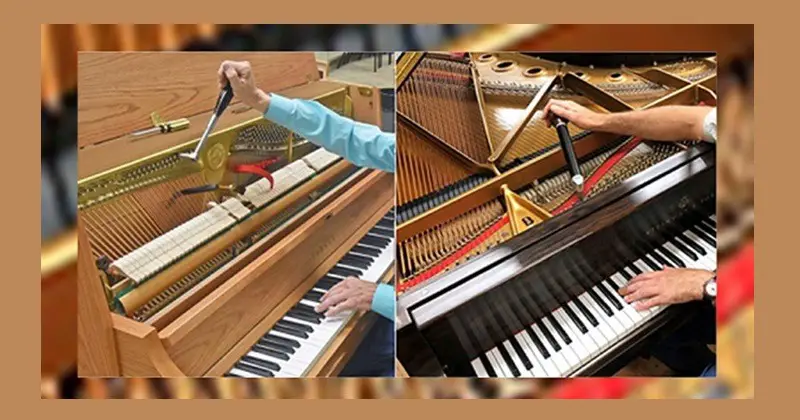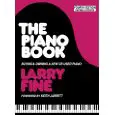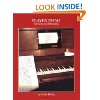
Guide to Piano Tuning: An essential maintenance work that is required because acoustic instruments go out of tune every few months due to various reasons. Piano tuning is a surprisingly simple process, although it doesn’t seem so when you look at it the first time. There are many who want to learn how to tune their piano, here’s more information that clearly explains how to do it, and we also recommend a few books on the topic. Learn more about tuning your piano.
Introduction
On string instruments, over time, the tension in the strings changes causing the sound also to change. This happens not just on an acoustic piano, but also on other string instruments such as Guitar, Violin etc.
When this happens, you say that your instrument has gone out of tune. You will then need to tune your instrument to make it playable again.
Piano Tuning – FAQs
What is Piano Tuning?
The sound on a Piano is produced when the hammers strike the strings causing them to vibrate. These strings are kept at an appropriate tension to produce the correct sound. But over a period of time, due to various factors, the tension in these strings changes causing the sound produced to be slightly different from what it should be.
Piano tuning is an essential maintenance work that needs to be carried out regularly to keep your Piano’s sound in good health. Tuning restores the tension in the strings to the correct levels and ensures good sound quality. If you do not tune your piano regularly, it will result in the degradation of the sound quality over time and your piano may need major repairs.
How Often Should You Tune?
In general, tuning your Piano every six months will keep it in good shape but you may have to do it a few more times depending on other factors as mentioned below.
- In general, tune twice a year
- Tune when the temperature is not too cold nor too cold
- Depending on the temperature and humidity in your room, the Piano may go out of tune more frequently
- When you move to a new place, give your piano some time to adjust to the new environment before tuning, say a couple of months.
- Haven’t tuned your Piano for a long time (over a year)? You may have to tune it more than once before returning to your normal tuning schedule.Piano technician
Tuning the piano is an entirely different skill-set and should be left to the piano technician unless you are trained to do tuning. You might actually end up paying more! Finding a technician is not a big deal but you still need to do some checks to ensure that person has the experience to carry out a decent job. Here are some tips to find a good Piano technician. - Compare the technician’s price with others
- Find out how long the technician has been tuning
- Is he familiar with the model and make of your piano?
- Get references from customers and dealers
- Is the technician affiliated to any professional organization?
- Is he skilled in doing repairs besides tuning
If you bought your piano recently then the manufacturer would definitely have recommend you to tune your piano twice a year. But most piano technicians recommend that you tune your piano at least once a year.
Good pianos cost several thousands of dollars, so it definitely makes sense to carry out this maintenance activity. A nominal piano tuning cost will ensure your instrument stays in good shape.
Piano Tuning Cost
I’m sure you would agree that the rates could differ based on various factors such as:
- The area/country you live in
- The condition of the piano, when was it last tuned
- Will it require multiple visits
- Any additional repair work to be carried out
- Any additional pitch raisings required
- Quality and Experience of the technician
So even though somebody tells you a particular amount as the average piano tuning cost, you could end up paying more depending on how badly is your piano out of tune.
The standard fee which most technicians quote only applies to well-maintained pianos, not the ones that are in real bad shape.
Usually piano tuners will quote somewhere around $100 in the Americas. So basically it may vary from $80 and $125 for a common tuning, with some really experienced one charging as much as $175 just for tuning the piano.
Any repair work such as a broken string, or replacing saddle straps, or anything to do with the dampers will incur additional charges.
“I am in Los Angeles, California and I charge around $100, basically anywhere around $80 and $120 depending on how much work is required. I take around 2 hours to do the job which includes tuning, simple cleaning and lubrication, and minor adjustments. But I agree to the point that most customers pay thousands of dollars to get the most expensive pianos and then they try to cut on the tuning costs. I don’t think it is wise to gamble with the instrument this way,” Ray from California.
How Much Time Does it Take to Tune?
Most piano tuning takes around 60 to 90 minutes; this is what most tuners would need. Though to be on the safer side you should keep aside about 2 hours so that the piano technician gets sufficient time to do a complete servicing of your piano.
Most tuners take about an hour or so to tune a piano, but the more experienced ones can knock one out in 30 to 40 minutes (their prices are also high).
Learning to Tune the Piano
So is it possible to restore and tune your piano on your own?
Though hiring the services of a technician is the best bet, if you enjoy fixing things, with the right piano parts and tools you can definitely give it a try.
Some tools that will come handy while tuning includes: Piano Tuning Lever, Electronic Chromatic Tuner, piano tuning kits, Piano Tuning Mutes.
Read: Best piano tuning kits.
Remember that though you can give it a try, it will take some time and practice before you can actually tune your piano to perfection. Turning pins and listening may seem easy to do, but professionals take years to perfect their piano tuning skills.
There are schools that teach piano tuning, you may even learn it from an expert piano technician. Most courses are about six months long where you grasp the intricacies of tightening wires until they produce the exact note intended, when struck with a hammer connected to an ivory key.
“Anyone that says they’re an expert in tuning the piano might be fooling themselves because you don’t ever become an expert. You continue to learn and at the end of your learning you start learning again”, says Eric Hawkes who has been restoring pianos for over fifty years.
Does knowing how to play the piano helps to tune the piano?
You really don’t need to be a piano player to be able to tune the piano. Most tuners don’t play the piano, but they do know the names of the notes and can play basic chords.They play a series of notes / chords, over and over, to make sure the piano is tuned.
Useful Resources/Book on Piano tuning

[easyazon_link identifier=”1929145012″ locale=”US” tag=”keytarhq04-20″]The Piano Book[/easyazon_link]
[easyazon_link identifier=”0911572406″ locale=”US” tag=”keytarhq04-20″]Player Piano: Servicing and Rebuilding[/easyazon_link]
[easyazon_link identifier=”1879511037″ locale=”US” tag=”keytarhq04-20″]Piano Servicing, Tuning, and Rebuilding[/easyazon_link]
[easyazon_link identifier=”0830415939″ locale=”US” tag=”keytarhq04-20″]Complete Course in Pro Piano Tuning[/easyazon_link]Piano Servicing, Tuning, and Rebuilding by Artur A. Reblitz
This is a great book written by Dennis Kurk, RPT, in case you’re really serious about doing this activity. From repinning flanges to setting temperaments, from fitting and drilling a new pinblock to proper let-off distance, it’s all explained nicely in this book. [easyazon_link identifier=”1879511037″ locale=”US” tag=”keytarhq04-20″ cart=”n”]See PRICE on Amazon[/easyazon_link].Experts offer advice on piano tuning and repair needs
Piano tuner and piano specialist offers tips to churches on how to maintain and keep their pianos in tune.
Pianos play an important role during Sunday services and special concerts in Churches. However, most churches do face challenges to keep their pianos in optimal condition.
And one of the reason for that is people are not aware that pianos exposed to frequent fluctuations in temperatures and humidity will have to be tuned much more often (than those that are not).
On the other hand, private homes generally provide a stable environment; so pianos at home are generally not exposed to lot of fluctuations when it comes to temperature and humidity.
But this is not the case with pianos in churches, where the temperature fluctuates a lot.
- During Sunday services, the temperature is usually adjusted to make it comfortable for the congregation. But, during much of the week, this is not the case.
- During summer, most churches will be hot and humid most of the time of the week – but during services and events, the A/C is usually turned on.
- In winter, most churches will be cold instead and the heater could be turned on during services and events. This poses special challenges for church piano tuning.
As you can see, the piano in a church is indeed subjected to frequent fluctuations in temperature and humidity.
It means, pianos in churches will require additional piano tunings to compensate for the destabilizing effects of the frequent-changing temperature.
Even pianos in schools face similar challenges.
Temperature fluctuations are also a major challenge for pianos in schools, since the facilities are kept heated or cooled during regular school hours.
At night and on weekends, they will be hot during the summer, and cold during the winter.Pianos in schools get used a lot (compared to those in churches). That, along with these temperature fluctuations make it necessary to tune school pianos fairly frequently.
More Useful Links
KeytarHQ editorial team includes musicians who write and review products for pianists, keyboardists, guitarists & other musicians. KeytarHQ is the best online resource for information on keyboards, pianos, synths, keytars, guitars and music gear for musicians of all abilities, ages and interests.



Leave a Reply